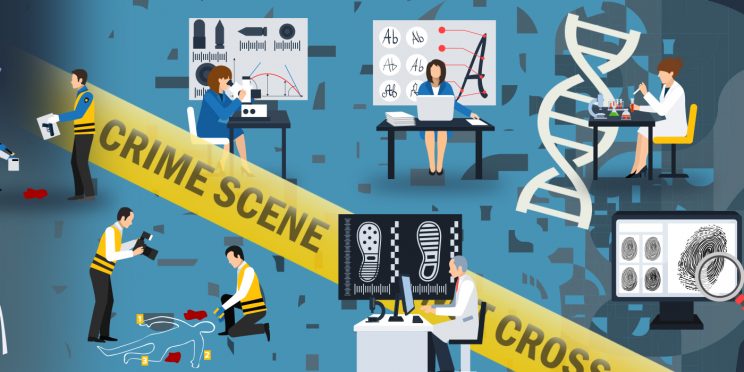Original Release Date: February 10, 2023
In episode three of our Unidentified Human Remains mini season, Just Science sat down with Mark Pooley, founder of Native Search Solutions, and Dustin Driscoll, Research Public Health Analyst at RTI International, to discuss the many barriers faced by indigenous communities when it comes to identifying missing and murdered persons.
In order to properly investigate cases of missing and murdered individuals, it is crucial that law enforcement agencies have access to necessary resources and technologies, including DNA analysis capabilities, national databases, and sufficient manpower. Unfortunately, many tribal law enforcement agencies currently work with limited access to these basic investigative tools, making it much more difficult to find and identify missing members of native and tribal groups. Listen along as Dustin and Mark discuss common causes of missing indigenous persons, specific gaps in investigative resources, and the growing community working to support indigenous groups.
This episode of Just Science is funded by the National Institute of Justice’s Forensic Technology Center of Excellence (Award #: 15PNIJ-21-GK-02192-MUMU).
Some content in this podcast may be considered sensitive and may evoke emotional responses, or may not be appropriate for younger audiences.
View or download the episode transcript here:
Transcript
Episode Citation
McKay, J., Pooley, M., & Driscoll, D. (2023, February 10). Just Science. Just Investigative Support for Indigenous Communities. [Audio podcast episode]. The Forensic Technology Center of Excellence. https://forensiccoe.org/podcast-2023-human-remains-ep3/
Guest Biography
Mark Pooley (Navajo/Hopi) is the founder of Native Search Solutions, a non-profit organization with a focus on finding Missing Indigenous People on and off the reservation(s). Mr. Pooley also retired as a Sergeant from the Tempe Police Department. Prior to his law enforcement career, he was a Tribal Prosecutor with the Salt River Pima-Maricopa Indian Community. Mr. Pooley holds a Master of Education from Northern Arizona University and a Bachelor of Arts in Political Science from Brigham Young University.
Dustin Driscoll graduated in 2006 from Westfield State University in Massachusetts with a Bachelor of Science degree in Criminal Justice and a minor in Psychology. He began working as a Financial Crime Analyst for Sovereign Bank in Boston, Massachusetts, where he investigated suspicious accounts that may have been associated with money laundering and/or terrorist activity. In early 2008, he accepted a position as a Senior Analyst at Salem Five Cents Savings Bank to assist with the expansion and transition of their anti-money laundering and security group. In late 2008, Dustin relocated to Washington, DC to work as an Analyst within the Case Analysis Unit at the National Center for Missing & Exploited Children (NCMEC). In this position, he was responsible for providing analytical assistance to law enforcement officers working various types of missing child cases. He spent the majority of his employment at NCMEC assigned to the Forensic Services Unit, where he was responsible for conducting more in-depth analyses of cold case missing and unidentified deceased children. In 2011, Mr. Driscoll was promoted to a Senior Analyst with NCMEC. Dustin joined the University of North Texas Health Science Center in October 2011 as a NamUs Analyst, and in January 2016, he became a Regional Program Specialist for NamUs Region 1. In July 2021, following the transition of the NamUs program management, Dustin joined RTI International to continue as the Regional Program Specialist for Region 1.
The opinions, findings, and conclusions or recommendations expressed in this podcast episode are those of the presenter(s) and do not necessarily reflect those of the U.S. Department of Justice.
Contact us at ForensicCOE@rti.org with any questions and subscribe to our newsletter for notifications.




